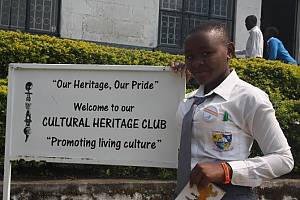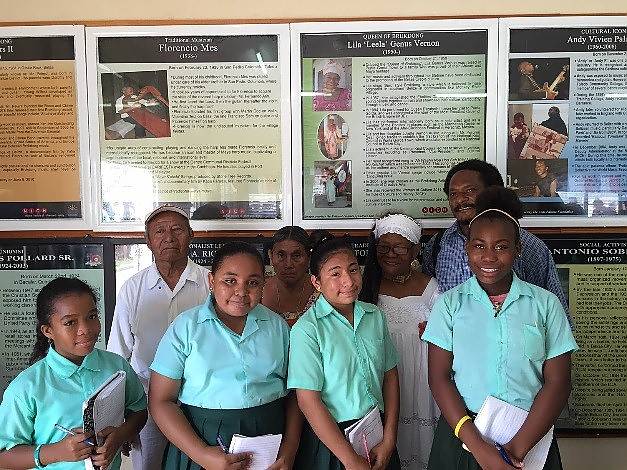29 noviembre 2016
Learning with intangible cultural heritage in education
Incorporating intangible heritage in education ‘a win-win situation’

© Nigel Encalada
Co-organized by the UNESCO Intangible Cultural Heritage Section and the International Institute for Capacity Building in Africa, a roundtable event on ‘Learning with Intangible Cultural Heritage in Education’ took place in the context of the eleventh session of the Intergovernmental Committee for the Safeguarding of the Intangible Cultural Heritage in Addis Ababa, Ethiopia.
Video recording of the event: original
During her opening statement, moderator Jyoti Hosagrahar, Director of UNESCO’s Culture Sector Division for Creativity, noted that ‘incorporating intangible cultural heritage in education is a win-win situation for education and culture and can make a significant contribution to achieving sustainable development goal 4 and its targets such as peace education and global citizenship’.
The Director emphasized that the Convention for the Safeguarding of the Intangible Cultural Heritage highlights transmission of intangible cultural heritage through formal and non-formal education as part of the proposed safeguarding measures.
Yumiko Yokozeki, Director of the International Institute for Capacity Building in Africa observed that: ‘learning with intangible cultural heritage leads us to respect each other and helps us “learn to live together” – one of the four pillars of learning’.
After remarks from the co-organizers, Mahama Ouedraogo from the African Union Commission emphasized the clear linkages between culture and education and their importance for the Agenda 2063: The Future We Want for Africa. Panelists then discussed a range of on the ground experiences from Belize, Uganda and Pakistan.
Learning with intangible heritage
An innovative UNESCO project on learning with intangible heritage for a sustainable future in four countries in Asia was presented by UNESCO facilitator Sajida Vandal, who spoke on her experience coordinating the project in Pakistan. The project underlined that we need to promote learning with and not only learning about intangible cultural heritage, if we want to foster transmission. Ms Vandal shared the message that ‘infusion of existing subjects with intangible cultural heritage was something teachers accepted and perceived as the best approach’.
Susanne Schnuttgen, Chief of the Capacity-Building and Heritage Policy Unit in the Intangible Cultural Heritage Section, pointed out that ‘the innovative part of what panelists said is that you can integrate intangible cultural heritage without an overhaul of the curricular system’. Incorporating intangible heritage in education can happen at the school level to improve learning and teaching processes within existing curricular.
Reconnecting schools and communities

© John De Coninck
All the speakers showed how incorporating intangible cultural heritage in schools reconnects the school with the community and strengthens a sense of belonging among the learners and teachers.
In Belize, educational materials were developed based on inventories done in tandem with schools and communities. Nigel Encalada, Director of Belize’s Institute for Social and Cultural Research of the National Institute of Culture and History, described that ‘the positives are when you produce the education materials with the communities, and the children see themselves and their grandparents in the materials. That is a source of pleasure. It provides the opportunity for the survival of the heritage into the future.’
The experience in Uganda has also been very positive according to John De Coninck from the Cross-Cultural Foundation of Uganda: ‘Young people are yearning to reconnect with their heritage. They don’t necessarily know how to do it, and schools are a useful mechanism to allow this to take place.’
Working together for quality education
A key message from the event was that intangible cultural heritage provides content and methods and fosters the relevance and quality of education, while education provides important spaces for transmission. Both of the co-organizers expressed their intention to continue their work on this topic: ‘we know that we have to work together from the education and the culture field in order to really make this a mutually beneficial relationship’.
 © Nigel Encalada
© Nigel Encalada